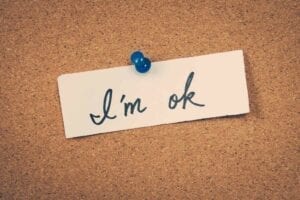We all have to deal with the gap between our expectations and our realities. It doesn’t matter what your position, tenure, education, or skillset is. This gap affects us all.
I have a confession to make. I am routinely let down by my own expectations. Maybe you can relate. I hold myself and those I work with to a standard none of us can keep. I want to see things happen my way and fast. I want it to be done right the first time. I want everyone to THINK about what they’re doing. I want to set big goals, accomplish them, and make it all look easy.
Unfortunately, as admirable as these desires may be, they are rarely met in full. Instead, I often find myself wishing things were better, wishing I didn’t have to deal with this problem or that one, wishing I had done better myself.
Left to my own devices, I get frustrated, cynical, and discouraged. Maybe you’ve felt that way yourself.
I lived life in this perpetual state of disappointment until I realized my external environment was never going to change. At that point, I had to decide what I was going to do. I couldn’t go on living like this, knowing that it was always going to be this way. Unable to change the outside, I took a look at the inside.
When I did, I found that I was continually striving to achieve perfection so that I could be OK with my results, my performance, and myself. I felt that if I could just do this, I would be OK.
If this sounds pessimistic, it’s not. It has little to do with pessimism or optimism. If anything, optimists (I count myself as one) have it even worse. In Good to Great, Jim Collins talks of an interview he did with Admiral Jim Stockdale, who was a prisoner of war in Vietnam for eight years. Here is his account,
“I asked Stockdale: ‘Who didn’t make it out of the camps?’ And he said, ‘Oh, that’s easy. It was the optimists. They were the ones who said we were going to be out by Christmas. And then they said we’d be out by Easter and then out by Fourth of July and out by Thanksgiving, and then it was Christmas again.’ Then Stockdale turned to me and said, ‘You know, I think they all died of broken hearts.'”
Those who died of broken hearts all shared the same flawed vantage point. Understandably, they saw OK as being a destination, then built up expectations about when and how that would happen only to see those expectations fail again and again.
It’s not possible to thrive today when we are always living for the future.
Instead, I’ve found that the best way to approach life is to find a way to be OK today, right here, right now, at this moment. If something has to change outside of myself for me to be OK, that something can and eventually will be taken from me.
A wise friend of mine took it a step further when he said, “The best way to ensure a positive outcome is to let go of that outcome.”
Contrary to what I thought, trying to control the outcomes and striving to be OK, only pushed me deeper into the cycle. It wasn’t until I started letting go of outcomes, that I found peace in the moment AND greater success in reaching those expectations I’d set.
I believe this is true in work, in management, in relationships, marriages, and in all parts of life. And I believe if you take a moment and come to terms with the way things are, and accept them, your ability to change them will improve dramatically. The best part is, you’ll be moving from OK to better, rather than succumbing to the constant struggle to reach OK.


 How to Find the Right Business Coach
How to Find the Right Business Coach